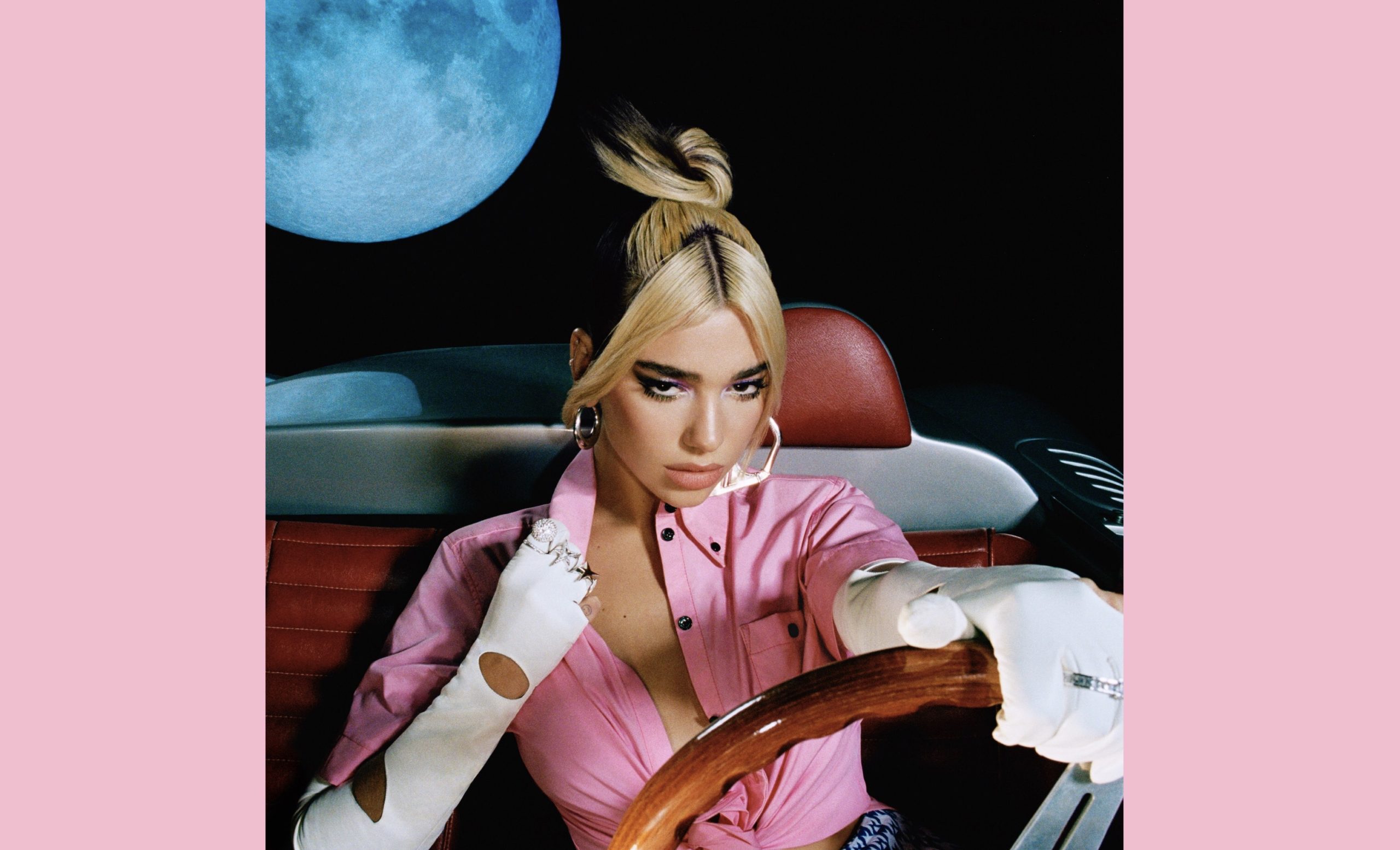By Sami Baker (@smibkr)
Navigating your second album can be risky business for musicians, and Dua Lipa is no exception. In addition to finding a fresh but familiar sound for her sophomore album, Lipa‘s new era faced high expectations following her “Best New Artist” Grammy win and an underlying sense of doubt among US listeners of her lasting commercial viability. Such hurdles have only been heightened with Lipa‘s meme-able performances that have drawn criticism of her dance abilities, as well as ongoing jokes poking fun at her foreign-sounding name (Dula Peep, anyone?).
Nevertheless, Lipa has risen above with the excellent ‘Future Nostalgia.’ And in spite of troll comments that dare to compare her to pop contemporaries, it feels especially fitting that Lipa‘s new era serves an ode to letting your hair down, shrugging off the negativity and leaving it all on the dance floor.
Between her debut LP, ‘Dua Lipa’ and now ‘Future Nostalgia,’ Lipa has successfully struck a cool equilibrium of old and new pop. On ‘Future Nostalgia,’ pop’s latest it-girl takes listeners on a dancercise journey through a world of disco and funky bass lines, borrowing from the likes of Jamiroquai, Daft Punk and Madonna’s ‘Confessions on a Dancefloor,’ to name but a handful of musical influences. “In control of what I do” Lipa declares on “Cool,” a statement that is very much apparent throughout the record. Like the album cover, Lipa proves that she’s in the driver’s seat. This confidence largely manifests as raw stamina across the first half of the record, seeing Lipa become the fitness coach of our dreams (‘Physical’), establish herself as the female alpha (“Future Nostalgia”) and “dance [her] arse off” (‘Levitating’).
At the halfway mark of the record sits “Pretty Please,” a welcome change of pace that exchanges the high-energy dance pop of the first half for a mid-tempo bop. It’s at this point that the record leans most on the future rather than the nostalgia, and Lipa is more vulnerable here than anywhere on the record. ‘Love Again’ sees her celebrate her ability to fall in love after multiple bouts of heartbreak – “I can’t believe there’s something left in my chest anymore” – only for her to question whether that’s a good thing on the next song, “Break My Heart.” The latest single from the album, ‘Break My Heart’ borrows the iconic riff from INXS’ ‘Need You Tonight’, mixing it into a revitalized bass line that makes it a compelling single choice.
‘Future Nostalgia’ manages to stay relevant in today’s pop landscape thanks to Lipa’s own perspective as a woman in a man’s world. “Good in Bed,” which could be lifted directly from a Lily Allen/Kate Nash record, is a jauntily cheeky cut, and one that shows a fun, frank side to her sex life. Conversely, the album’s closing track switches off the disco lights in place of a serious piano-and-string-led ballad tackling male privilege. For anyone that’s a fan of Lipa, we know that she has always been outspoken and engaged, but it’s a new step in her career for her to translate such feelings into politically-charged music.
But overall, what’s most exciting about ‘Future Nostalgia’ is the obvious effort that Lipa has undergone to improve her ability. The internet was ablaze with memes after a particularly unflattering performance of “One Kiss,” spawning jokes left and right that aimed to undermine her credibility. She’s pulled a full 180 with this era – in particular with her MTV EMA performance of “Don’t Start Now” – and proven that she has what it takes to own a stage.
‘Future Nostalgia’ sees Lipa shedding the easy-listening-jukebox pop of her debut in place of a cohesive and structured aesthetic. Sampling older songs with a modern twist isn’t unheard of in pop, as many artists have flocked toward the comfort of 80s conventions. However, it’s rare for an artist to reinvent the motif as refreshingly and unexpectedly as Lipa has here. While she could never have known the world situation that she would release her sophomore album in, everything about this era speaks of a musician that’s experiencing immense joy, and she’s inviting us to revel in it with her.





